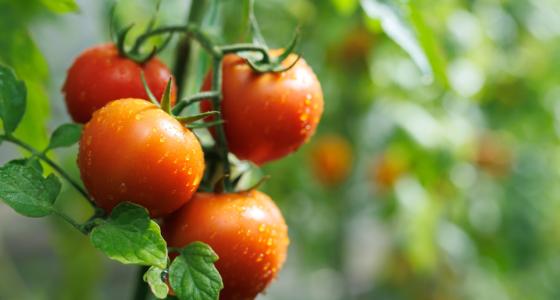Food Authority confirms safe consumption of affected tomatoes amid virus claims
By
- Replies 11
In a surprising turn of events that has both consumers and producers talking, Food Standards Australia New Zealand (FSANZ) has made a bold statement regarding the safety of consuming tomatoes affected by a contagious virus.
Despite the havoc the tomato brown rugose fruit virus (ToBRFV) has wreaked on South Australia's tomato industry, FSANZ assures the public that tomatoes affected by the virus are perfectly safe to eat.
ToBRFV is a plant virus causing significant concern among growers, particularly affecting tomatoes, capsicums, and chillies.
The virus diminishes the aesthetic appeal of these fruits and reduces crop yields, which can substantially impact farms' marketability and financial viability.
Dr Sandra Cuthbert, CEO of FSANZ, has stepped forward to alleviate consumer fears by confirming that the virus poses no food safety risk.
'Consumers can continue to eat tomatoes and other produce with confidence,' Cuthbert stated.
‘The virus reduces crop yields and marketability, and the restrictions that have been put in place aim to protect other producers from these impacts.’
‘Australia's world-class biosecurity and food regulation systems manage plant viruses like tomato brown rugose fruit virus to support the sustainability of our agricultural industries and minimise disruption to the food supply chain.’
Last week, Perfection Fresh Australia, a tomato company, revealed that it would have to lay off a substantial number of employees due to the ongoing outbreak.
Concerns are growing that this could jeopardise the entire state industry.
In other news, the Oropouche virus, transmitted through insect bites and initially found in sloths, has been detected in humans in Europe for the first time, with 19 confirmed cases reported.
Symptoms of the virus include headaches, nausea, vomiting, and muscle and joint pain. In more severe instances, it can lead to meningitis. You can read more about it here.
 Have you noticed any changes in the quality of your produce lately? How do you feel about eating virus-affected vegetables? Share your thoughts and experiences in the comments below.
Have you noticed any changes in the quality of your produce lately? How do you feel about eating virus-affected vegetables? Share your thoughts and experiences in the comments below.
Despite the havoc the tomato brown rugose fruit virus (ToBRFV) has wreaked on South Australia's tomato industry, FSANZ assures the public that tomatoes affected by the virus are perfectly safe to eat.
ToBRFV is a plant virus causing significant concern among growers, particularly affecting tomatoes, capsicums, and chillies.
The virus diminishes the aesthetic appeal of these fruits and reduces crop yields, which can substantially impact farms' marketability and financial viability.
Dr Sandra Cuthbert, CEO of FSANZ, has stepped forward to alleviate consumer fears by confirming that the virus poses no food safety risk.
'Consumers can continue to eat tomatoes and other produce with confidence,' Cuthbert stated.
‘The virus reduces crop yields and marketability, and the restrictions that have been put in place aim to protect other producers from these impacts.’
‘Australia's world-class biosecurity and food regulation systems manage plant viruses like tomato brown rugose fruit virus to support the sustainability of our agricultural industries and minimise disruption to the food supply chain.’
Last week, Perfection Fresh Australia, a tomato company, revealed that it would have to lay off a substantial number of employees due to the ongoing outbreak.
Concerns are growing that this could jeopardise the entire state industry.
In other news, the Oropouche virus, transmitted through insect bites and initially found in sloths, has been detected in humans in Europe for the first time, with 19 confirmed cases reported.
Symptoms of the virus include headaches, nausea, vomiting, and muscle and joint pain. In more severe instances, it can lead to meningitis. You can read more about it here.
Key Takeaways
- Tomato crops in South Australia have been affected by tomato brown rugose fruit virus (ToBRFV).
- FSANZ, the country's top food authority, has assured that tomatoes with ToBRFV are safe to eat.
- The virus impacts crop yields and marketability, leading to restrictions to protect other producers.
- Despite the viral outbreak, Australia's biosecurity and food regulation systems continue to support agricultural sustainability and minimise food supply disruption.








